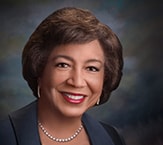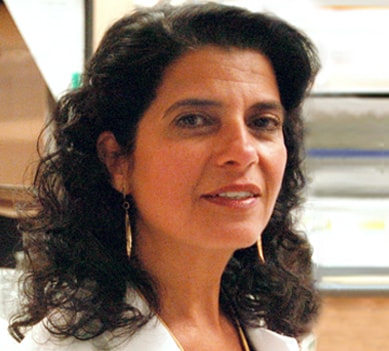From epidemiology, prevention, early detection, and interception, to basic, translational, and clinical research, AACR members make breakthroughs for patients across the entire spectrum of cancer science. AACR programs and initiatives build relationships among scientists, clinicians, and other health care professionals and harness their efforts in support of its mission to prevent and cure all cancers.
MEMBERS BY CATEGORY
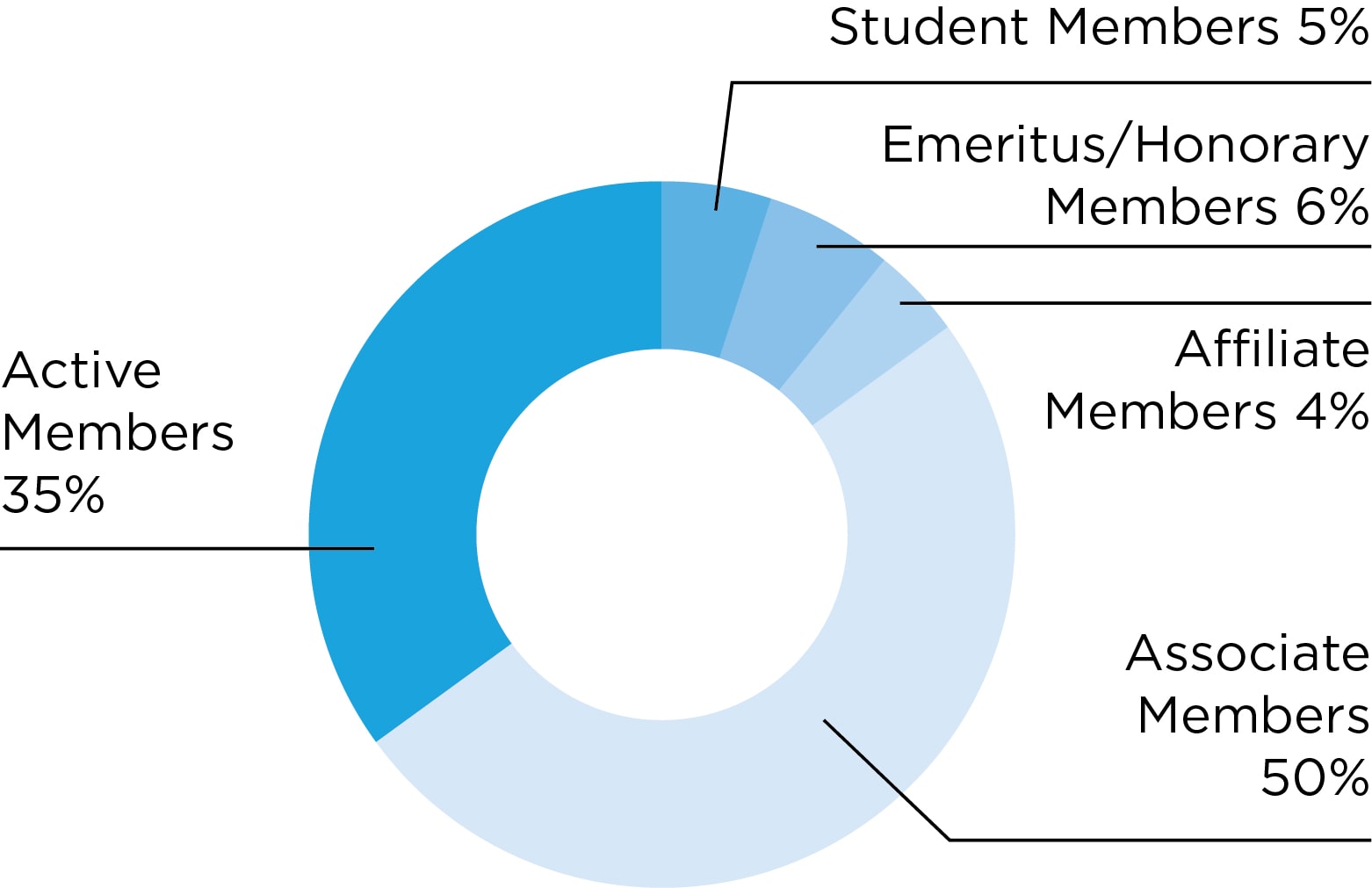
Active Members: Established laboratory researchers, physician-scientists, clinicians, and population scientists
Associate Members: Young laboratory scientists and physicians-in-training (graduate students, medical students and residents, and clinical and postdoctoral fellows)
Student Members: Undergraduate and high school students
Emeritus Members: Active members who have reached the age of 70 years
Affiliate Members: Other health care professionals (practicing oncologists, nurses, laboratory technicians, nonscientific corporate professionals, and patient advocates)
50,000+
Individuals were members of the AACR as of December 2021. The AACR is the first and largest cancer research organization dedicated to accelerating the conquest of cancer.
3,924
New members joined the AACR in 2021.
184
Nobel Laureates have been members of the AACR.
4,603
Individuals have been AACR members for more than 25 years.
204
Individuals have been AACR members for more than 50 years.
129
Countries are represented by AACR members.
711
Patient advocates are members of the AACR.
MEMBERS BY WORK SETTING
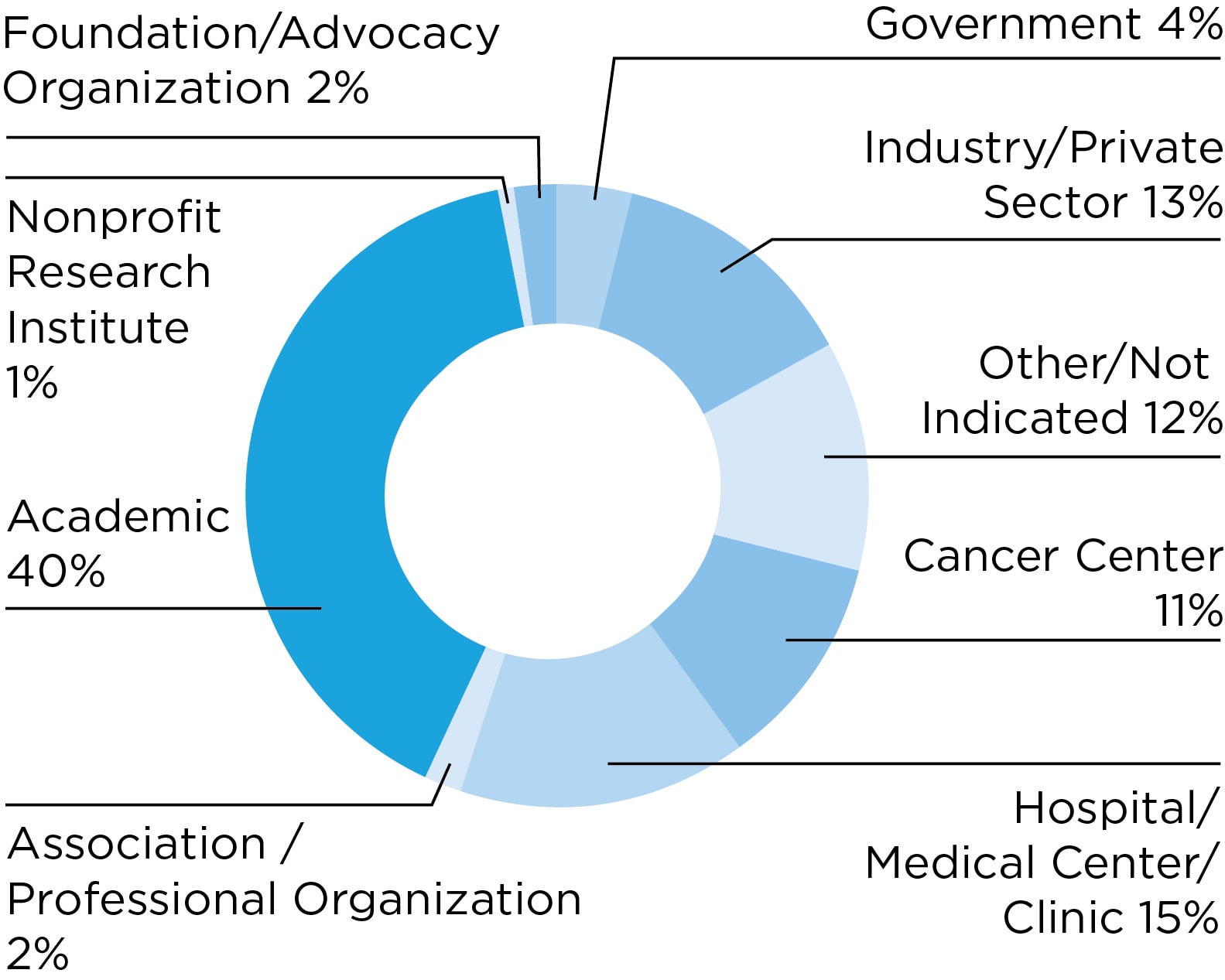
MEMBERS BY RACE/ETHNICITY
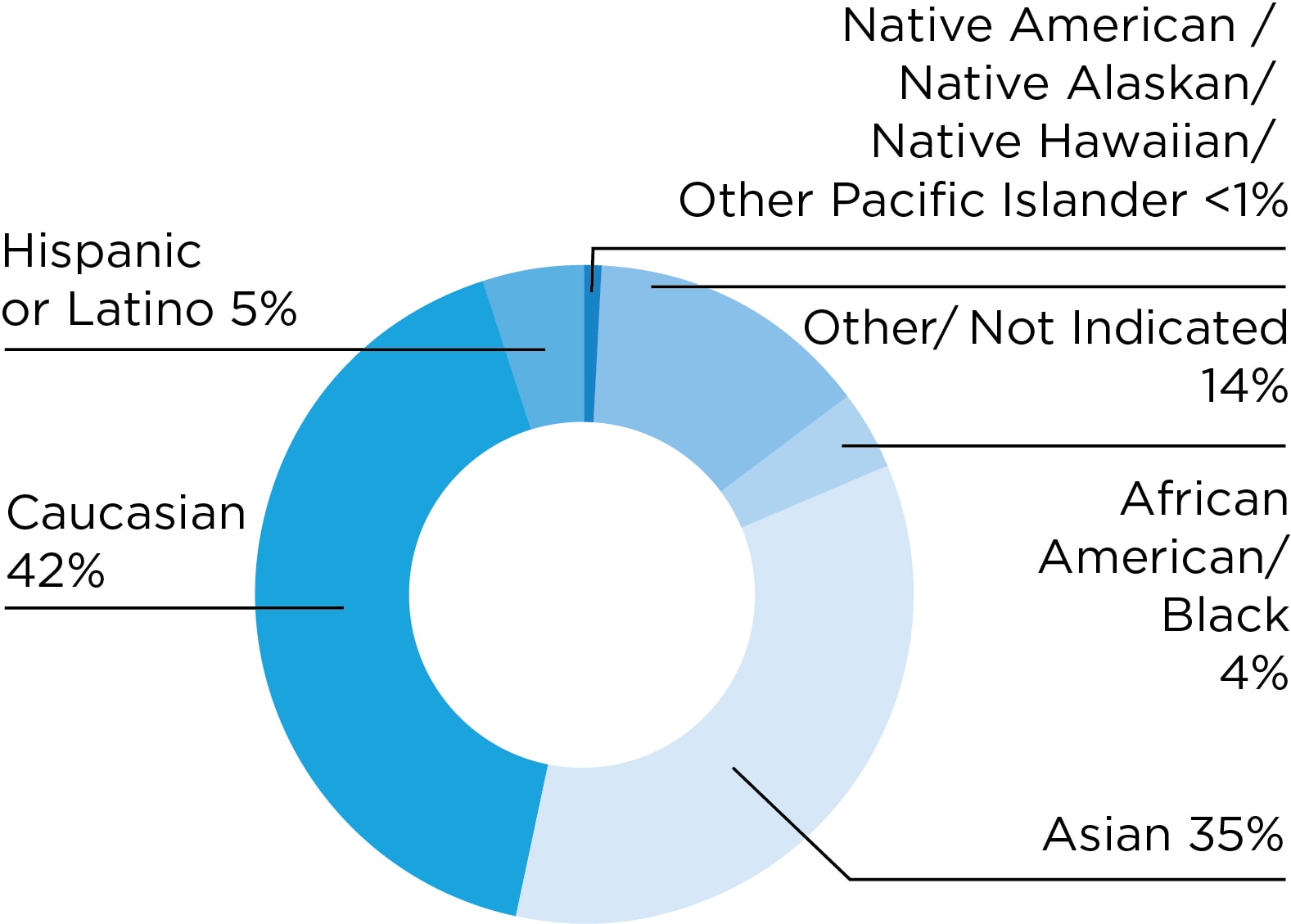
MEMBERS BY GENDER
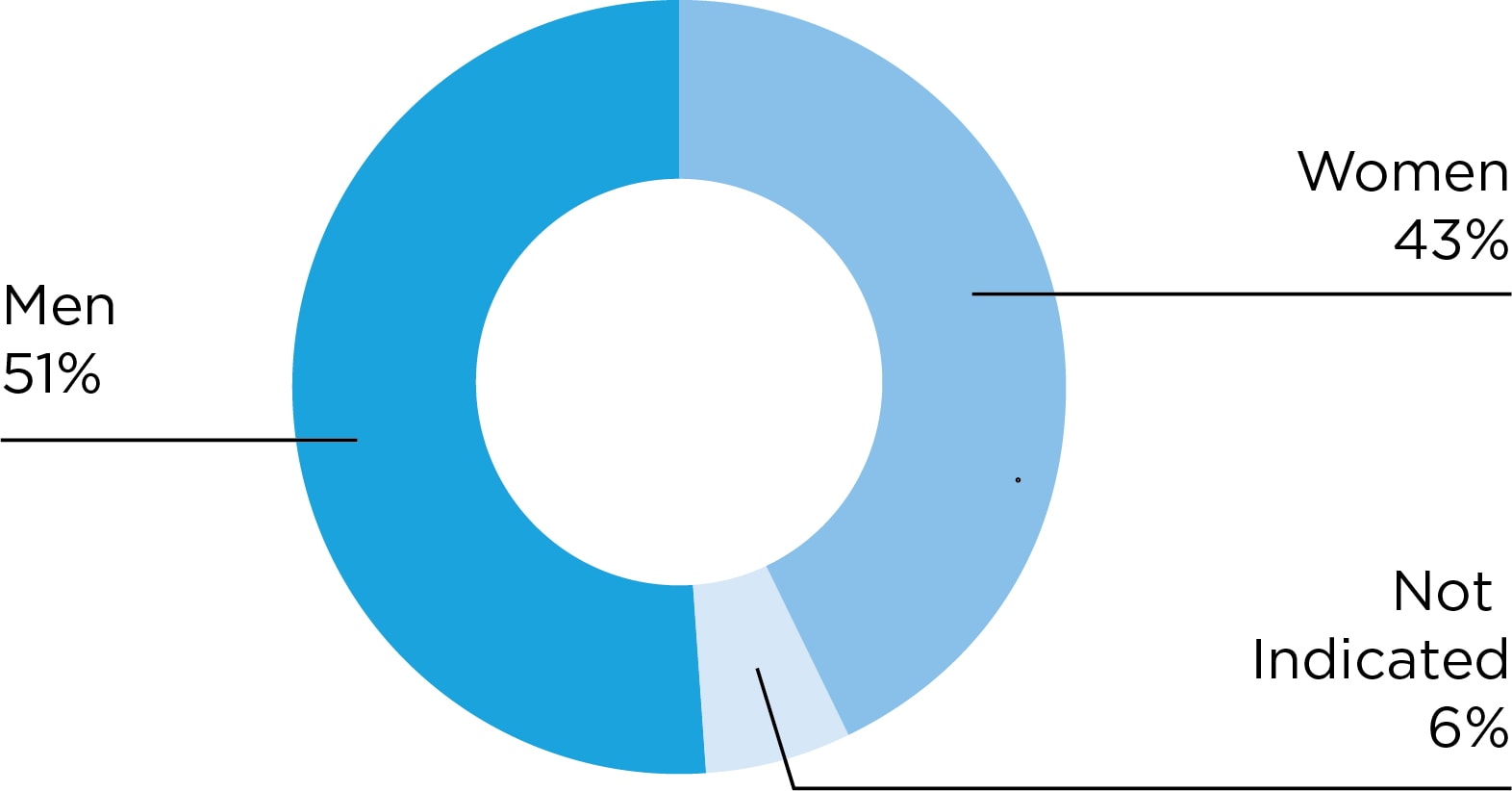
Associate Member Council (2021 Council Chair: Kristin G. Anderson, PhD)
The Associate Member Council (AMC) serves as the leadership body for AACR associate members, who consist of graduate students, medical students and residents, and clinical and postdoctoral fellows. The Council develops programs that address the particular needs of early-career scientists.
- Early-Career Hill Day.
In February, a total of 26 Associate Members participated in the sixth annual AACR Early-Career Hill Day. The early-career scientists visited the offices of their senators and representatives virtually and asked them to support continued robust funding for the National Institutes of Health (NIH) and National Cancer Institute (NCI).
- Career Discussion Sessions.
In May, the Council offered a slate of Career Discussions during Week 2 of the virtual AACR Annual Meeting 2021. These informal networking sessions provided early-career researchers with opportunities to interact with recently transitioned physician-scientists and junior faculty. Topics addressed included transitioning to a leadership role in one’s field and establishing successful collaborations between academic and industry scientists.
Minorities in Cancer Research (2021 Council Chair: Gerardo Colon-Otero, MD)
Minorities in Cancer Research (MICR) is a membership group within the AACR committed to preventing and curing cancer while meeting the professional needs and advancing the careers of minority scientists. The MICR Council acts as an advisory body to the AACR leadership on issues of concern to minority investigators, including the elimination of cancer health disparities.
- MICR Leadership of the National Cancer Program.
In September, President Biden appointed two members of the MICR Council, John D. Carpten, PhD, FAACR, and Luis A. Diaz Jr., MD, to the National Cancer Advisory Board (NCAB). Dr. Carpten, who also serves on the AACR Board of Directors, was named the chair of the NCAB. The board guides the director of the NCI in setting the course for the national cancer research program. The NCAB complements the Biden administration’s efforts to build on the Cancer Moonshot initiative, which President Biden led during the Obama administration.
- Education and Training.
MICR encourages minority scientists to pursue careers in cancer research through its Scholar Award programs, which provide support for minority scientists and faculty members at minority-serving institutions to attend AACR meetings. In 2021, a total of 29 MICR Minority Scholar in Cancer Research awardees and 18 MICR Minority and Minority-Serving Institution Faculty Scholars attended the virtual AACR Annual Meeting and other virtual AACR conferences.
Women in Cancer Research (2021 Council Chair: Amelie G. Ramirez, PhD)
Women in Cancer Research (WICR) is a membership group within the AACR committed to recognizing women’s scientific achievements and fostering their career development and advancement in cancer research. The WICR Council acts as an advisory body to the AACR leadership on issues of concern to women scientists.






